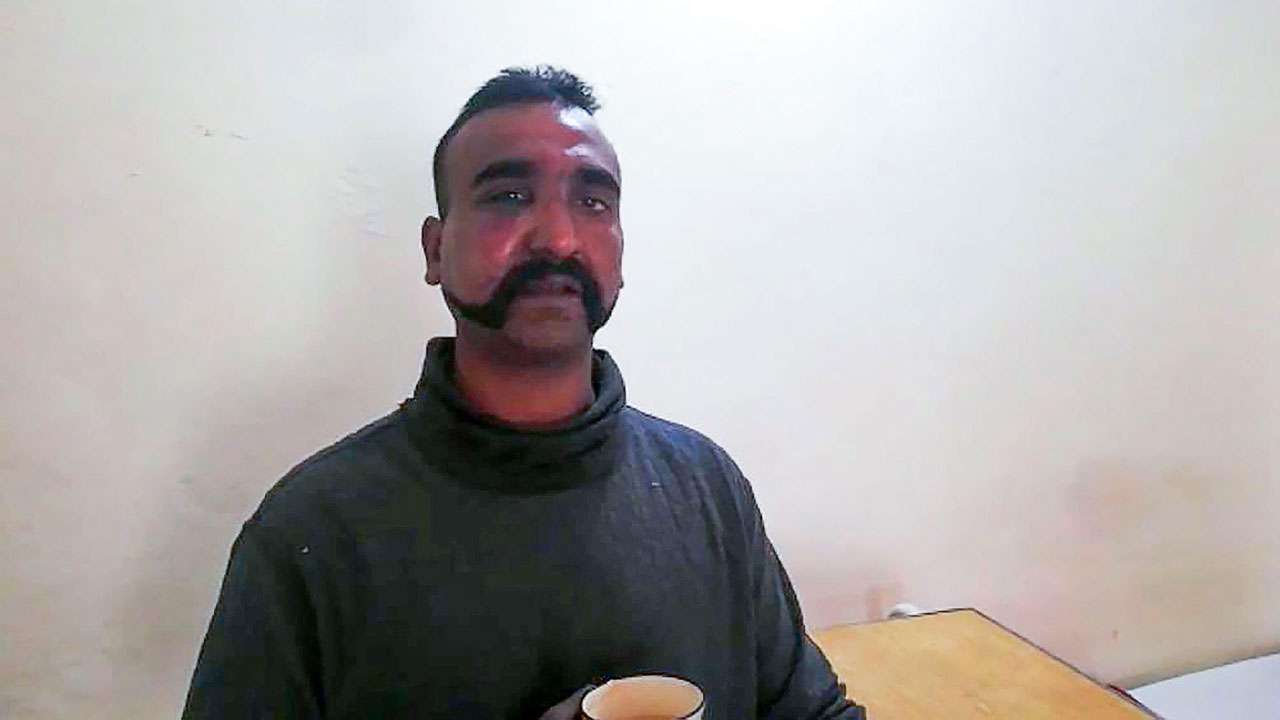DNA Edit: Welcome move – Release of IAF pilot Abhinandan would help ease tensions

Abhinandan Varthaman , AFP
It is a step in the right direction. Credit must be given to Pakistani premier Imran Khan for announcing on the floor of Parliament that they are releasing captured Indian Air Force (IAF) pilot, Wing Commander Abhinandan Varthaman, when he bailed out of his MIG Bison into Pakistani territory on Wednesday. To restore sanity in bilateral ties wrecked by 72 odd hours of bloody mayhem, this is an important step. It is also crucial at this stage not to adopt jingoism and chest thumping as the preferred mode of conversation, as some TV channels seem to be doing. If Pakistan has seen sense in releasing the captured IAF pilot, it needs to be appreciated as a peaceful gesture rather than a comedown, which is not the case.
For far too long, Indo-Pakistan ties have been hostage to this crisis of identity and the humane treatment of a captured armed forces combatant needs to be appreciated. For a change too, Pakistan has followed the Vienna Convention on Prisoners of War (POWs), in letter and spirit. The convention, which was first detailed in 1929, refined in 1949 and then reworked again in 1977, remains the most comprehensive document on the treatment of those members of the armed forces who fall into the hands of the adverse party. The Convention, which is binding on 195 countries, stresses that “POWs must be treated humanely in all circumstances. They are protected against any acts of violence, as well as against intimidation, insults and public curiosity.” “Their detention,” it goes on to state further, “is not a form of punishment, but only aims to prevent further participation in the conflict. They must be released and repatriated without delay after the end of hostilities.”
Pitched against these golden words, the drama in the hours following the arrest of Abhinandan, was hardly according to the book. The fact that his capture, assault by civilians who saw him bail out of his aircraft and subsequent questioning by Pakistani Army captors with his bloodied nose - all available on WhatsApp - defies the golden rule of the Vienna Convention, which strictly prohibits any public display of a captured personnel. Pakistan’s record in upholding the Vienna Convention, is not exactly spectacular. During the 1999 Kargil conflict, Group Captain K Nachiketa, had to eject from his aircraft after an engine failure at high altitude and was captured by the Pakistanis. Later, Nachiketa in his testimonies, spoke of the torture he had to undergo at the hands of his captors keen to elicit sensitive information.
Again in Kargil, Captain Saurabh Kalia, held by the Pakistanis on the LoC, was brutally tortured and executed by the Pakistani Army, after being held in captivity for several days. Credit needs to be given to Indian diplomats who have worked quietly behind the scenes to secure the pilot’s release. At a meeting with Pakistani diplomats in New Delhi, the Ministry of External Affairs has asked for the safe keep of Wing Commander Abhinandan, calling for his return as soon as possible under the Vienna Convention.